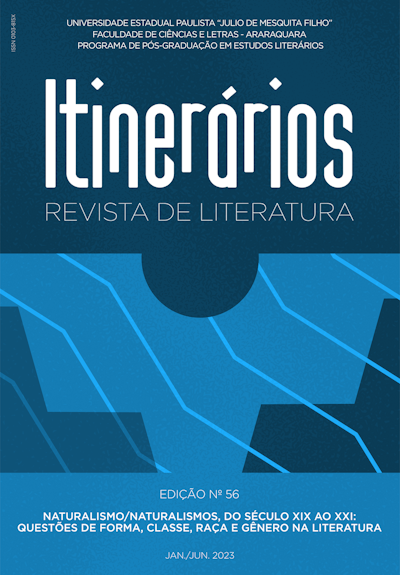Quebrando a quarta parede
o teatro absurdista de Samuel Beckett
DOI:
https://doi.org/10.58943/irl.v1i56.17846Palavras-chave:
Samuel Beckett, Absurdismo, Naturalismo, Teatro britânico, PerformanceResumo
A emergência do drama de Samuel Beckett na cena teatral londrina da década de 1950 se tornou um marco importante na história do teatro britânico. Por meio de peças construídas a partir de uma então inovadora linguagem dramática que engloba elementos verbais, visuais e performáticos que, inicialmente, causaram grande estranhamento entre diretores, atores e espectadores, Beckett reconfigurou significativamente o que o teatro pode significar. Neste artigo, discutirei elementos distintivos do teatro beckettiano que deram origem a uma estética absurdista cuja meta-teatralidade subverte princípios fundamentais do naturalismo teatral. Dando ênfase à dramaturgia e à performance beckettianas, examinarei diferentes mecanismos pelos quais peças como Esperando Godot, Fim de partida e Dias felizes se declaram enquanto artefatos teatrais, impedindo, desse modo, que seja produzido o efeito de ilusão dramática característico do teatro naturalista.
Downloads
Publicado
Edição
Seção
Licença
Os manuscritos aceitos e publicados são de propriedade da revista Itinerários. É vedada a submissão integral ou parcial do manuscrito a qualquer outro periódico. A responsabilidade do conteúdo dos artigos é exclusiva dos autores. É vedada a tradução para outro idioma sem a autorização escrita do Editor ouvida a Comissão Editorial.

